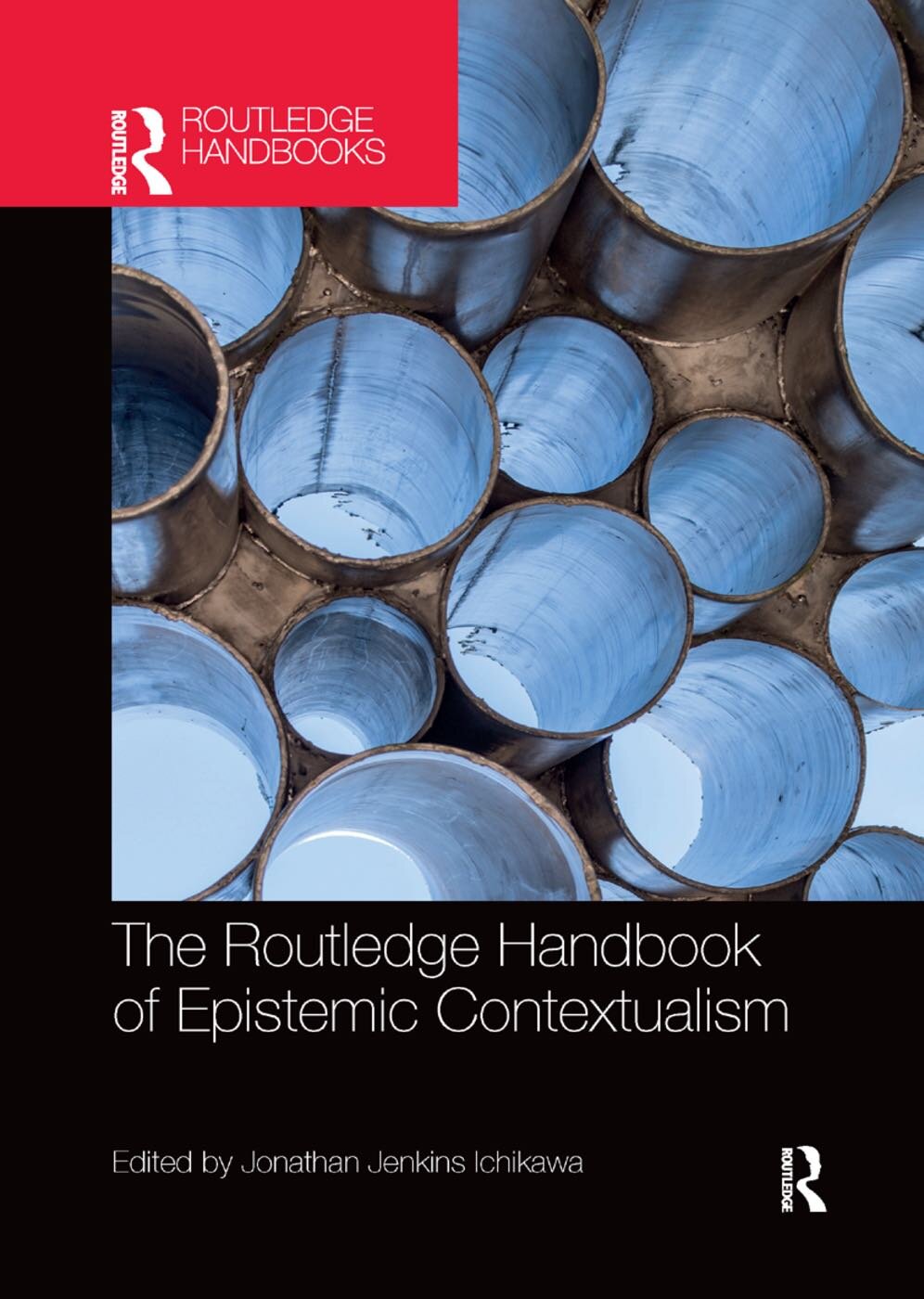Routledge Handbook of Epistemic Contextualism
I edited the Routledge Handbook of Epistemic Contextualism. The volume, part of Routledge's Handbooks in Philosophy series, commissioned thirty-seven original chapters on or related to the idea that 'knows' is a context-sensitive term.
You can read my Introduction to the volume here. A list of chapters is below. The volume was published in 2017.
Reviews
"Can greater attentiveness to the mechanisms of language solve, or dissolve, central philosophical problems? In no area has this question been as deeply explored as epistemology. This remarkable volume brings together most of the major contributors to this debate in epistemology, one that has clear ramifications for philosophical methodology generally." - Jason Stanley, Yale University, USA
"An excellent resource for students and researchers interested in epistemic contextualism, with expert treatment of a broad range of pertinent topics. The editor and his slate of contributors inspire high confidence." - Ernest Sosa, Rutgers University, USA
Table of Contents
§1 Data and Motivations
1. The Variability of ‘Knows’: An Opinionated Overview (Crispin Wright)
2. The Intuitive Basis for Contextualism (Geoff Pynn)
3. Epistemic Contextualism and Linguistic Behavior (Wesley Buckwalter)
4. Feminism and Contextualism (Evelyn Brister)
§2 Methodological Issues
5. Epistemic Contextualism and Conceptual Ethics (E. Diaz-Leon)
6. Does Contextualism Hinge on a Methodological Dispute? (Mikkel Gerken, Jie Gao, and Stephen B. Ryan)
7. The Psychological Context of Contextualism (Jennifer Nagel and Julia Jael Smith)
8. What Are We Doing When We Theorize About Context Sensitivity? (Derek Ball)
§3 Epistemological Implications
9. But is it Epistemology? Epistemic Contextualism and the Shifting the Question Objection (Brian Montgomery)
10. Skepticism and Contextualism (Michael J. Hannon)
11. Contextualism and Fallibilism (Keith DeRose)
12. Contextualism and Closure (Maria Lasonen-Aarnio)
13. Lotteries and Prefaces (Matthew A. Benton)
14. Contextualism and Knowledge Norms (Alex Worsnip)
15. Contextualism and Gettier Cases (John Greco)
§4 Doing Without Contextualism
16. ‘Knowledge’ and Pragmatics (Patrick Rysiew)
17. Loose Use and Belief variation (Wayne A. Davis)
18. Semantic Minimalism and Speech Act Pluralism applied to ‘knows’ (Herman Cappelen)
19. Interest-Relative Invariantism (Brian Weatherson)
§5 Relativism and Disagreement
20. The Disagreement Challenge to Contextualism (Justin Khoo)
21. On Disagreement (Torfinn Thomesen Huvenes)
22. Contextualism, Relativism, and the Problem of Lost Disagreement (Elke Brendel)
23. Epistemological Implications of Relativism (J. Adam Carter)
§6 Semantic Implementations
24. The Semantic Error Problem for Epistemic Contextualism (Patrick Greenough & Dirk Kindermann)
25. Conversational Kinematics (Robin McKenna)
26. ‘Knowledge’ and Quantifiers (Nathan R. Cockram)
27. Gradability and Knowledge (Michael Blome-Tillmann)
§7 Contextualism Outside 'Knows'
28. Moral Contextualism and Epistemic Contextualism: Similarities and Differences (Berit Brogaard)
29. Contextualism about Epistemic Reasons (Daniel Fogal and Kurt Sylvan)
30. Contextualism about Epistemic Modals (J.L. Dowell)
31. Contextualism about Belief Ascriptions (Roger Clarke)
32. Counterfactuals and Knowledge (Karen S. Lewis)
33. Contextualism about Foundations (Daniel Greco)
§8 Foundational Linguistic Issues
34. The Semantics-Pragmatics Distinction and Context-Sensitivity (Maite Ezcurdia)
35. The Mind-independence of Contexts for Knowledge-Attributions (Giovanni Mion and Christopher Gauker)
36. Index, context, and the content of knowledge (Brian Rabern)
37. Contextualism in Epistemology and Relevance Theory (Mark Jary and Robert J. Stainton)
